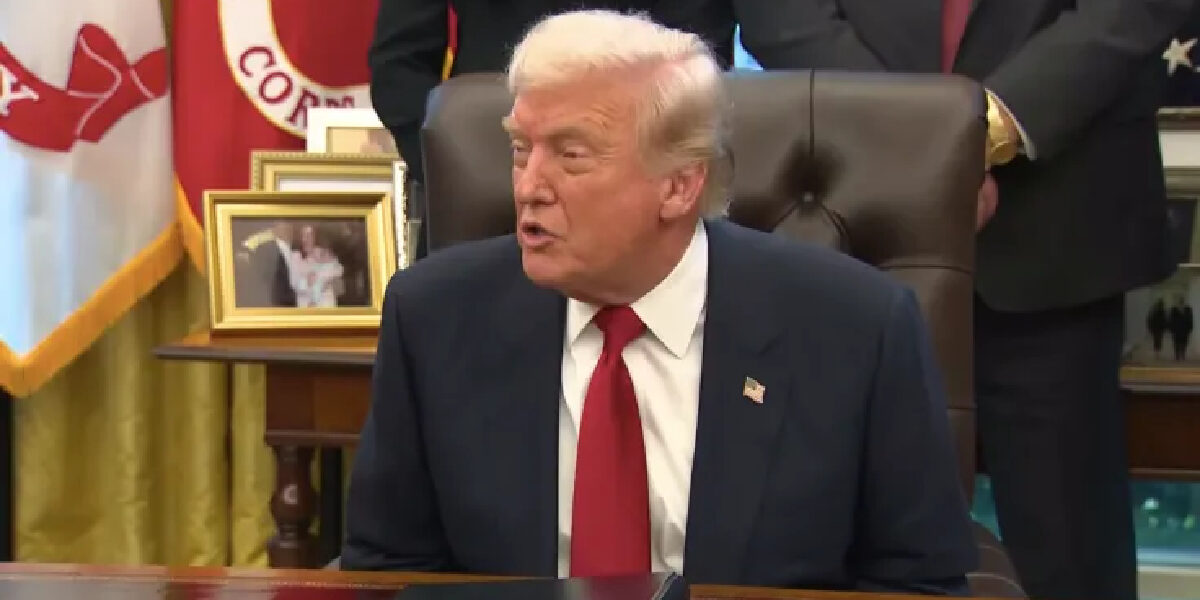President Donald Trump suffered an embarrassing political setback after the White House failed to stop a bipartisan effort demanding the release of Jeffrey Epstein–related documents, leaving the administration looking both rattled and weakened.
Throughout the day, Trump and his top advisers scrambled to pressure House Republicans into withdrawing their support for a discharge petition that unexpectedly reached the crucial 218 signatures required to force a vote. But their efforts collapsed the moment Rep.-elect Adelita Grijalva was sworn into office and immediately added her signature—cementing the petition’s success just hours after Democrats released new emails from Epstein that referenced Trump directly.
The frantic behind-the-scenes lobbying and sudden online outbursts from the President painted a picture of a White House in defensive chaos.
A Last-Minute White House Blitz
One of the administration’s most controversial moves came when officials summoned Rep. Lauren Boebert to the White House in hopes of convincing her to remove her signature from the petition. While the White House attempted to frame the meeting as routine, critics argued it represented unusual and inappropriate pressure.
Press Secretary Karoline Leavitt insisted the outreach was about “transparency,” but the decision to reportedly hold the meeting in the Situation Room—a location normally reserved for national security emergencies—sparked immediate accusations of political strong-arming.
Despite the effort, it didn’t work. Moments after Grijalva took the oath of office, she signed the petition that pushed the document-release vote over the threshold. Republican leaders, who previously delayed her swearing-in during the shutdown negotiations, were powerless to stop it once the House reconvened.
For the White House, the failure amounted to a public embarrassment: a day spent scrambling to halt a vote that became inevitable anyway.
Fresh Epstein Documents Reignite Pressure
The scramble was triggered by Democrats releasing three emails from Epstein’s estate in which Epstein referenced Trump. One email claimed a woman had “spent hours at my house” with Trump, while another said Trump “knew about the girls.”
The disclosures immediately renewed bipartisan calls for full transparency, prompting victims’ advocates to demand the release of all remaining Epstein-related records. The House Oversight Committee then published roughly 20,000 additional pages from Epstein’s estate. Republican lawmakers countered with their own document release, accusing Democrats of selectively leaking material.
Trump responded on Truth Social, calling the revelations a “Democrat hoax” and insisting Republicans should focus on reopening the government. But behind the scenes, reports indicated that both White House staff and Justice Department officials had quietly urged lawmakers not to support the petition—an intervention that only added fuel to accusations of political interference.
The coordinated pushback created the impression of a presidency desperately trying to contain a story that threatens to linger in the headlines.
Political Stakes: High, Risky, and Unavoidable
A forced House vote means every lawmaker will soon have to publicly state whether they support releasing additional records tied to Epstein—a scandal that has touched political, corporate, and social elites for decades.
For Trump, the risk is significant. Even if the documents don’t reveal new wrongdoing, revisiting Epstein’s history and Trump’s long-documented relationship with him risks a fresh wave of damaging coverage during a pivotal election season.
For Republicans, the vote creates a tense split between loyalty to Trump and the growing public demand for transparency. Speaker Mike Johnson has confirmed that the full House will vote next week, setting up a dramatic and potentially explosive moment on Capitol Hill.
The decision of a small number of GOP lawmakers could determine not only the fate of the Epstein files but also the political direction of an already embattled presidency.
The day ended with the White House appearing shaken and increasingly exposed. What began as a full-scale effort to stop a vote ended in a very public defeat—one that is likely to haunt the administration in the days ahead.
